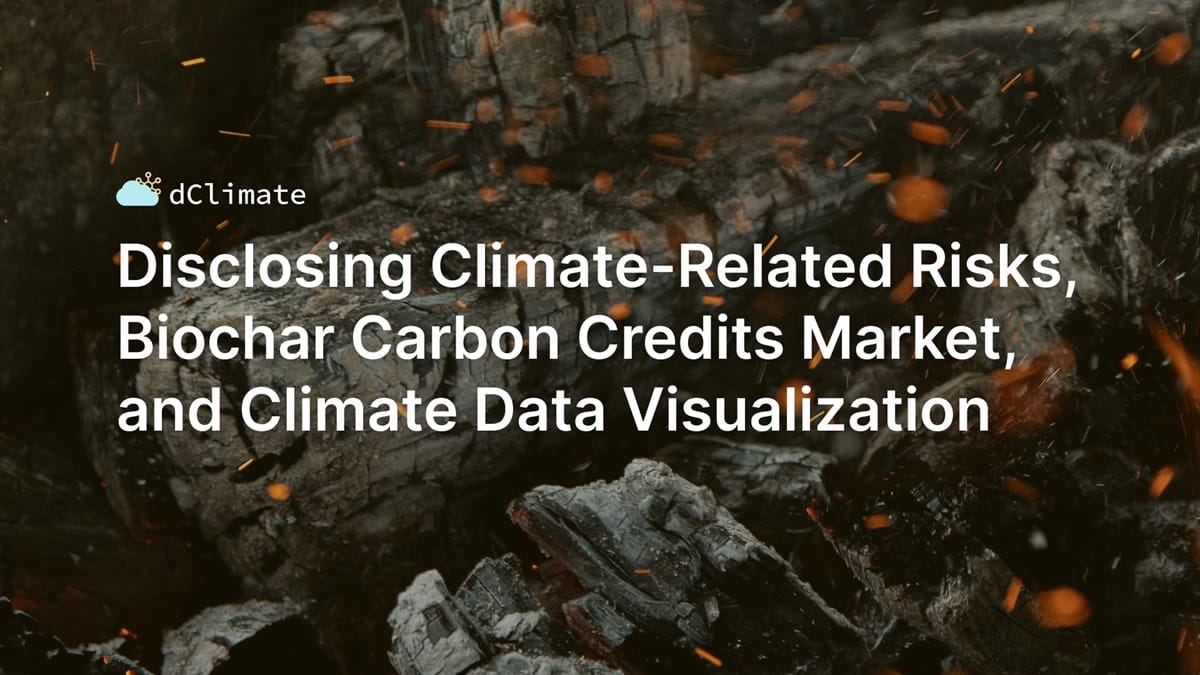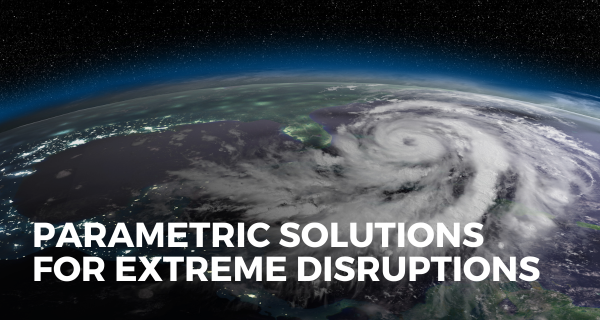Data ReFined #27: Disclosing Climate-Related Risks, Biochar Carbon Credits Market, and Climate Data Visualization

The Newsletter about Climate Data, Regenerative Finance, and Climate Risk ⛅
Hello, and thanks for your interest in our biweekly newsletter!
This issue features the U.S. Securities and Exchange Commission's (SEC) new rules for mandatory climate-related risk disclosures, Toucan's marketplace for biochar carbon removal credits, and Copernicus' new data visualization platform powered by the ERA5 dataset. We also cover Brazil's partnership to enhance climate finance and conservation efforts, a video explainer of sea ice levels in Antarctica, and much more.
Let's uncover the insights! 👇
Industry News

Marketplace for Biochar Carbon Removal Credits
Toucan has introduced the first global market for biochar carbon credits. Biochar is a type of charcoal and can sequester carbon for over a century. The blockchain-based platform CHAR by Toucan offers a transparent venue for trading validated biochar credits, aiding both developers and buyers in navigating this new market.

Carbon Credits Explained by MIT
MIT's article on carbon credits outlines the essential role of robust, enforceable standards in carbon trading systems for effectively reducing global emissions. It emphasizes the debate over carbon credits' efficacy, highlighting the need for strict offset criteria and the value of nature-based solutions in augmenting emission reduction efforts.

Scaling Brazil's Climate Finance
Brazil has partnered with the Glasgow Financial Alliance for Net Zero (GFANZ), the world's largest climate finance alliance, to enhance clean energy and nature restoration funding. This collaboration aims to mobilize public and private financing. The partnership is part of Brazil's broader effort to take a leading role in global climate action, including restoring degraded or destroyed Amazon rainforests and developing new financing mechanisms for nature-based solutions.


Mandatory Disclosure of Climate-Related Risks
The SEC has adopted new rules requiring most publicly traded companies to disclose climate-related risks in their registration statements and annual reports. The new rules, effective 60 days after publication in the Federal Register, aim for a consistent framework and have dropped the burdensome Scope 3 disclosures from the initial proposal.

Climate Risk Insurance for Carbon and Agriculture
Carbon Pulse recently interviewed Sid Jha, one of the co-founders of dClimate. The article explores the growing demand for climate risk insurance driven by the interdependence of global supply chains and delves into the roles of digital MRV platforms like CYCLOPS, addresses the issue of risk gaps, and examines the role and benefits of parametric insurance solutions.

Understanding Weather Derivatives
Arbol's latest article explains weather derivatives, highlighting that businesses can use these financial tools to hedge against climate risks such as temperature fluctuations or rainfall. These derivatives are customizable and can be traded, providing operational resilience against weather-related perils in agriculture, energy, tourism, and other weather-sensitive industries.

Parametric Insurance for Climate-Related Disruptions
This recent article from InsTech discusses the growing use of parametric solutions as a financial safety net against non-damage business interruption losses caused by disruptions such as natural disasters and extreme weather events. Parametric insurance offers a quick payout based on predefined conditions, helping to mitigate the financial impact of disruptions that may not be covered by traditional insurance.


Climate Data Visualization
Copernicus has introduced Climate Pulse, an interactive application that showcases near-real-time global average surface air and sea surface temperatures. Climate Pulse leverages the ERA5 reanalysis dataset, making it easier for users to understand climate changes, compare data across different years, and share climate insights.

Climate Insights from Declassified Spy Satellite Imagery
A group of scientists has preprocessed over 1 million images from four historical U.S. spy satellite programs. This work removes some of the challenges of using this data for conservation planning and ecosystem restoration efforts, including identifying meaningful ecological baselines.

Antarctic Sea Ice Levels, Explained
In just two years, Antarctica lost as much sea ice as the Arctic lost in three decades. This 12-minute video from PBS Terra explains some of the ecological dynamics behind this loss in ice coverage.
Thank You for Reading! 💙
We appreciate your support and interest! Should you find the information in our newsletter insightful, we encourage you to share it within your network to help spread awareness about the important topics we've addressed.
Feel free to connect with us through our social media channels below to share your thoughts, suggestions, or feedback.
Twitter | LinkedIn | Discord | Telegram | YouTube
Learn more about the decentralized and open climate data ecosystem we are building via the links below!
🌐 Visit our website
👉 Check out our products
💽 Explore 40+ TB of free climate data via our data marketplace and API









